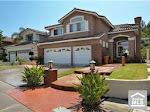As housing recoveries go, this one is in need of a cure.
Homeownership — and the buying and selling of residences — is an economic keystone that carries overwhelming weight in Californians' personal sense of financial well-being.
But the momentum of the state's housing rebound has faltered, with sales falling and prices softening despite bargain-basement interest rates. Foreclosures in California are still high. Sales of new homes are at historic lows. The construction sector is in the doldrums. And millions of the state's homeowners owe more on their mortgages than their properties are worth.
Real estate historically has helped give a boost to economies exiting a recession, but the severity of this bust is nearly unprecedented: Californians have lost $1.73 trillion worth of equity in their homes since prices peaked in 2007, according to Moody's Economy.com.
Although California's housing market free-fall ended in spring 2009, the weakness after the expiration of federal tax credits for buyers last year has called into question the sustainability of the recovery.
The Times asked five California experts for their take on the state of real estate and what they think is needed to get the housing market moving again. They range from the pessimism of a foreclosure specialist to the decidedly more upbeat view of a Realtor association economist.
• Richard Green, director of the USC Lusk Center for Real Estate, predicts home prices will remain flat in 2011.
California's recovery will hinge on location, said Green, who held professorships at several universities and worked as a principal economist at Freddie Mac before becoming director of the Lusk center.
"Draw a line from El Centro up to Sacramento and think of all the towns up and down that line. Unless we have hyperinflation in general in the economy — prices going up a lot — I would guess that in my lifetime we will not see a return to the prices that we had at the peak," Green said.
"Now, places like La Jolla, Malibu, Laguna, Huntington Beach, Atherton, Palo Alto, the city of San Francisco, Marin County, those are places where within the next five years I could easily imagine prices returning to their peak."
"The markets in the Central Valley were much more bubbly than the markets on the coast," he said. "You have very few people who make a lot of money in these places."
"Whereas a place like Silicon Valley, or a place like West Los Angeles, there is a critical mass of very high-income people.… That means you have a large number of people who can afford to spend in the neighborhood of $1 million on a house, and these are desirable places."
"The more a property is a commodity that you can easily substitute for something else, the less the chance it will ever come back to its peak. The rarer a property is, the more likely it's going to come back quickly."
• Leslie Appleton-Young, chief economist for the California Assn. of Realtors, predicts home prices will rise 2% in 2011.
There are few professionals who would like more to see the housing market bounce back to the heady days of old than Realtors. Real estate agents made a killing when the housing market soared and then took a pounding when it tanked.
During the boom years, Appleton-Young said, she espoused the theory that rising prices mattered more than making solid loans. That theory appeared correct as long as values kept rising.
"What happened this time was prices plummeted and everyone was in trouble," she said.
These days, the economist sees little chance of the market returning to its previous heights anytime soon.
"We are in a very slow-moving recovery with prices stabilized at the moderate and low end," Appleton-Young said. "We are still seeing price attrition and price softening at the upper ends of the market."
2011 will be lackluster, she said, but that does not mean California is not improving.
"We are almost two years into a price recovery. The problem is not to look at 2007 as the normal market that you are moving back up to, because it wasn't a normal market. We are back in an underwriting environment that actually makes sense."
"You are seeing prices recovering throughout the state," she added. "It is just going to take time."
• Bruce Norris, president of Norris Group in Riverside, expects home prices to fall 5% in 2011.
The real estate slump has been good to Norris, an investor in foreclosed homes. But he believes the market is being artificially boosted by government programs and is set to fall further this year.
"We are in an artificial recovery," Norris said. "It's government controlled and manipulated. We have extremely favorable interest rates that we really should not have, based on our debt. We have supported real estate with tax rebates, and we have prevented inventory from showing up by allowing people to be two and three years behind on their mortgages."
Foreclosed homes, in particular, are being kept off the market through loan modification attempts and other policies.
"You've had a slew of programs trying to prevent inventory from showing up, and that prevents reality from happening," Norris said. "It's definitely standing in the way of the natural process."
What does the housing market need most?
"Demand for houses," Norris said. "Somebody able to qualify for a loan and actually being able to get it. And that's why it is not going to happen."
• Emile Haddad, chief executive of FivePoint Communities Inc., expects home prices to "stabilize" in 2011 but declined to make a specific price prediction.
Determining whether the housing market is on steady footing is essential to developers such as Haddad, the former chief investment officer for Lennar Corp. Haddad, along with Lennar, is now part owner of FivePoint, which is managing the development of the Valencia community in Los Angeles County and other high-profile projects. He believes a recovery has yet to take hold in California.
"We are bumping along the bottom," Haddad said. "And that is a good thing, because that is the first thing that you need in order to start seeing a housing recovery. You need to have a period where values are not going down and the trend is moving in a different direction."
California's coastal markets will come back once the job market returns, he said, lifting consumer confidence. But California's inland areas are more likely to lag behind, and builders will have to reconsider the kind of product they offer in such places.
"In the Central Valley, values have changed a lot," Haddad said. "You are not going to be able to really have enough depth in the market to sell large, expensive homes, because the ceiling of value is way down."
"If you pick on a market like Orange County," he said, "it is still a place that once people feel confident.... I believe people will be out buying homes."
Affordability is working in the market's favor.
"We have a mortgage environment that is more favorable — the rates are down — but people are not able to get mortgages, and that is not helping. The most important thing we need is jobs and job creation."
"Affordability is something I look at, and obviously that is a very attractive metric right now.... There is a value proposition out there right now that is very attractive, that we haven't seen in four decades."
• Christopher Thornberg, founding principal of Beacon Economics, predicts home prices will remain flat in 2011.
Once a senior economist for the UCLA Anderson Forecast, Thornberg was one of the first to predict the housing crash, pointing to prices that were way out of line with what people earned.
In that vein, he views the plunge in home values as its own recovery of sorts "because that is when prices went from stupid-high levels to levels that made sense again," Thornberg said. "Now we are in a post-recovery recovery, if you will."
"This is not the bust. A bust implies that prices have fallen to levels that are too low. And I would argue that prices today are relatively high. It's interest rates that have given us this degree of affordability, and from that perspective that is why I don't expect prices to come down."
Since helping found Beacon in 2006, Thornberg has become chief economist for state Controller John Chiang and chair of the Controller's Council of Economic Advisors. He serves on the advisory board of New York hedge fund Paulson & Co. He has been a forceful critic of the Obama administration's policy attempts to right the market.
"The administration has tried, through a variety of policy methods, to try and spike the market," he said.
Read more...









































































































